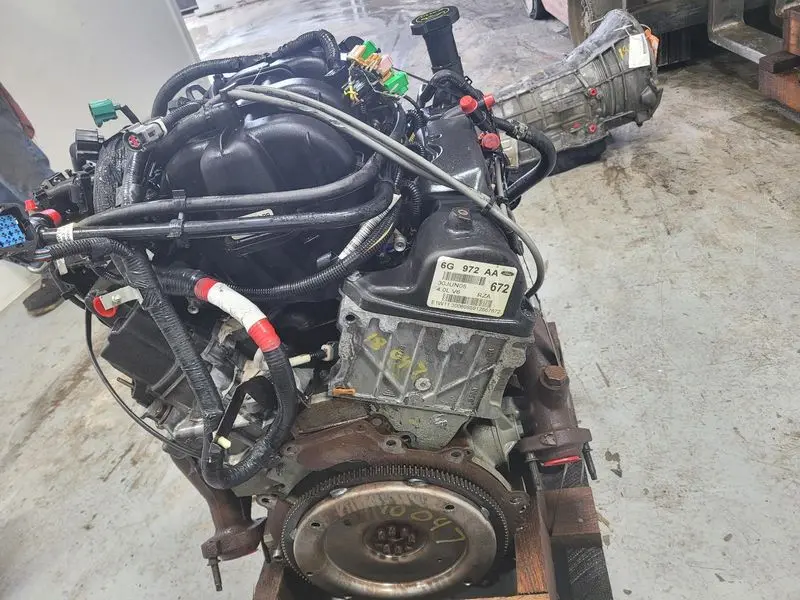What Makes an Automobile Engine Run Efficiently: Leading Tips for Optimum Care
The smooth operation of an auto engine is essential to both efficiency and durability, making optimal care a crucial responsibility for lorry owners. What particular actions should you focus on to ensure your engine stays in peak condition?
Routine Oil Modifications
Among one of the most vital elements of vehicle upkeep is guaranteeing your engine receives routine oil adjustments. Engine oil lubes interior parts, minimizes rubbing, and aids maintain optimal operating temperature levels. Over time, oil deteriorates as a result of heat, impurities, and the all-natural byproducts of combustion, causing reduced efficiency and possible engine damages.
The majority of makers recommend changing the oil every 5,000 to 7,500 miles, however this period can differ based upon driving conditions and oil kind. As an example, artificial oils might permit for longer intervals in between modifications. Regular oil changes not just boost engine efficiency but additionally improve fuel efficiency, as tidy oil advertises smoother operation.
Ignoring oil changes can cause sludge accumulation, which harms circulation and can result in severe engine problems. It is essential to inspect oil degrees on a regular basis and check for any uncommon modifications in shade or consistency, which can suggest contamination or destruction.

Maintaining Coolant Levels
Keeping correct coolant degrees is essential for protecting against engine overheating and making sure optimum efficiency. The coolant, normally a blend of water and antifreeze, circulates via the engine, taking in warmth and protecting against thermal tension. Not enough coolant can cause raised engine temperature levels, which may cause serious damage or also complete engine failure.
To maintain optimal coolant degrees, consistently inspect the coolant tank, normally located in the engine bay. Guarantee the coolant is loaded to the suggested mark, as suggested in your lorry's proprietor guidebook. It is a good idea to examine the levels at the very least as soon as a month or soon journeys, especially during severe climate conditions.
If you notice that the coolant degree is consistently reduced, there might be a leakage in the air conditioning system, which ought to be dealt with promptly to prevent additional problems. 2.2 ford ranger engine. In addition, purging the coolant system every a couple of years can aid eliminate any accumulated particles and ensure reliable heat exchange
Checking Air Filters
It is advised to check the air filter every 12,000 to 15,000 miles, or a lot more regularly if driving in messy or unfavorable conditions. A basic aesthetic evaluation can commonly disclose whether the filter is unclean or damaged. If the filter shows up discolored or has noticeable dirt accumulation, it must be replaced immediately.
Utilizing a premium air filter designed for your specific vehicle design can additionally improve engine efficiency. Additionally, some automobiles might profit from multiple-use filters that can be cleaned and re-installed, supplying a environmentally pleasant and cost-efficient option.
Inspecting Glow Plugs
Ignition system are important elements of a car's ignition system, straight affecting engine efficiency and effectiveness. They create the stimulate that stirs up the air-fuel combination in the burning chamber, promoting the engine's power generation. Normal inspection of spark plugs is critical for keeping optimal engine feature and protecting against potential problems.
Dark residue or oil down payments can show improper burning, while a white or raw look might suggest overheating. Both conditions require immediate attention to avoid additional engine damages.
It's suggested to inspect spark plugs every 30,000 miles, or as suggested in your vehicle's proprietor guidebook. In addition, Source consider changing them according to the manufacturer's standards, as old or used ignition system can bring about misfires, lowered fuel effectiveness, and increased discharges.
Monitoring Tire Stress
Under-inflated tires can lead to reduced fuel effectiveness, enhanced tire wear, and endangered handling. Regular tracking of tire pressure is necessary for optimal lorry procedure.
Tire stress need to be inspected a minimum of as soon as a month and soon trips. Utilize a reputable tire pressure gauge to gauge the pressure when the tires are cold, preferably prior to the car has been driven for a minimum of 3 hours. Refer to the car's proprietor guidebook or the placard located on the motorist's side door jamb for the maker's advised pressure levels.
It is very important to note that look at these guys tire pressure can change with adjustments in temperature level; a decline of 10 ° F can cause a 1-2 psi reduction in stress. Furthermore, aesthetically examine tires for any kind of signs of wear or damage throughout your monitoring regimen. Maintaining appropriate tire stress not only boosts car safety and security however additionally improves gas effectiveness and lengthens tire life, eventually adding to a smoother engine performance.
Verdict
In conclusion, maintaining a vehicle engine's smooth procedure requires thorough attention to numerous vital elements. Inevitably, a proactive method to engine treatment is important for ensuring integrity and functionality over time.
One of the most critical elements of vehicle maintenance is guaranteeing your engine receives routine oil modifications. Engine oil lubes interior components, lowers friction, and helps maintain optimum operating temperatures. Routine oil adjustments not only enhance engine efficiency but likewise enhance fuel efficiency, as clean oil promotes smoother operation.
Insufficient coolant can lead to boosted engine temperatures, which may create extreme damages or even total engine failing.
